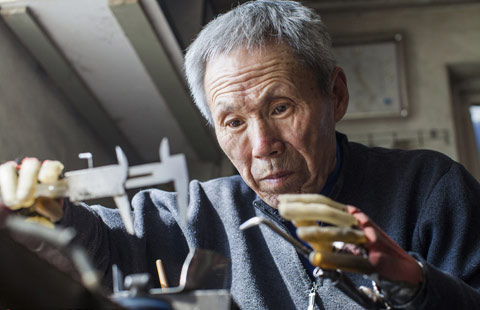China plays increasing role in global innovation: WIPO
(Xinhua) Updated: 2016-03-18 00:33BEIJING -- China has continued to perform strongly in international patent and trademark filing against the backdrop of a moderate worldwide intellectual property (IP) filing growth, according to the latest figures released by the World Intellectual ,Property Organization (WIPO).
The WIPO issued a report analyzing the amount and sources of global IP applications in 2015, including patents, trademarks and industrial designs, in Geneva on Wednesday.
"Global IP applications provide a good indication of the incidence and location of innovation," said Francis Gurry, Director General of WIPO at the press conference in Geneva.
"We see through this indicator that, while the United States of America maintains its premier position, the geography of innovation continues to shift and to evolve, with Asia, and in particular Japan, China and the Republic of Korea, forming the predominant geographical cluster," Gurry added.
International patent applications filed under WIPO's Patent Cooperation Treaty (PCT) were up by 1.7 percent to 218,000 in 2015, the slowest growth in five years, with the United States extending its long-standing position as the top source.
China's PCT applications exceeded 29,800 in 2015, an increase of 16.8 percent, ranking third for the third year behind the United States and Japan.
The three top filing companies were China's Huawei Technologies, followed by US-based Qualcomm and China's ZTE Corp. Huawei topped the list since 2013.
"China has played an increasing role in global innovation with its improved innovation ability and awareness of IP," Chen Hongbing, Director of WIPO Office in China, told Xinhua.
The report revealed that, with over 2,400 applications last year, China made the most filings for international trademark applications under the Madrid System since it became a member of the system in 1989. The country was in seventh place among all filers.
"We can see that Chinese enterprises are picking up their pace in doing business overseas. They are building international brands to improve competitive standing in the global market," said Chen.
Chen attributed the achievements to pursuit of an innovation-driven economy. "Reform of scientific and technological systems, increasing investment in research and development and strengthened IP protection have driven progress."
The WIPO expects China's technology, products and services to benefit the world through the Belt and Road and international production capacity cooperation, and is willing to use their innovation resources to better serve China's economic growth, Chen said.
Chen suggested China speed up the process of becoming a member of Hague System that governs the international registration of industrial design.
"China, as a major manufacturing nation, should better use industrial design as an IP tool to help its manufacturers winning competitive advantages in the global market," Chen said.
- China makes breakthrough in 'man-made sun' research
- Food delivery start-up faces fines, investigation following expose
- Pension payment and healthcare needs 'will be solved'
- Zootopia promotes illegal fox trading
- China reassures world on growth and reform
- For oil company, natural gas new 'engine of growth'
- China releases water from dam to alleviate SE Asia drought
- China to help alleviate drought along Mekong River
- Churches face severe shortage of clergy in the country
- Soybean province wants protection from GM crops







